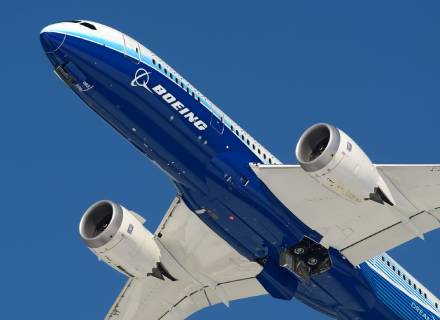As per the reports, the watchdog of the United States Department of Transportation is investigating the Federal Aviation Administration’s (FAA) supervision of Boeing’s production of 737 and 787 families of passenger jets.
“It’s very healthy for the (Office of Inspector General) to be constantly auditing everything that happens across the DoT,” the Reuters report quoted United States Transportation Secretary Pete Buttigieg as having said at the World Economy Summit.
“Obviously, when something is in the news, they’re going to take a closer look the same way we’re taking a closer look at Boeing,” Buttigieg stated further.
The FAA has been under intense scrutiny and criticism since a door plug panel tore off a new Alaska Airlines 737 MAX 9 jet at 16,000 feet in January 2024.
In February, a group of US lawmakers demanded answers to important questions regarding the agency’s oversight of Boeing.
The troubled aircraft manufacturer experienced a management change in the wake of the blowout incident, US regulators imposed production restrictions, and in March, deliveries dropped by half.
Meanwhile, Northcoast Research shifted from a “Neutral” to a “Sell” rating and set a new target price of USD 140 for Boeing shares. In anticipation of the aerospace giant’s upcoming quarterly earnings report, which is expected to be released in less than two weeks, the downgrade reflects increased concerns about the company’s financial health.
Following a turbulent quarter for Boeing that included strange incidents involving aeroplane parts falling from the sky and concerning disclosures about safety procedures, the investment firm made its decision.
The increasing unease regarding the company’s operational challenges has also been exacerbated by whistleblower accounts. Regarding its cash flow and balance sheet stability, Northcoast Research analysts believe Boeing may encounter major challenges.
Based on the company’s current cash balance of USD 11 billion, the baseline scenario of the firm now projects that Boeing will generate USD 9 billion in free cash over the next few years, down from the previously estimated USD 16 billion.
Trouble Mounts Further
Meanwhile, Boeing’s safety culture and manufacturing quality were scrutinised on April 17, 2024, in two US Senate hearings.
“Testimony at the US Senate Permanent Subcommittee on Investigations raised questions about Boeing’s treatment of whistleblowers, records surrounding the blown-out door plug on the Alaska Airlines narrow-body jet and production concerns over two separate wide-body jets,” Reuters stated further.
Former Boeing engineer Ed Pierson said he turned over records, sent to him from an internal whistleblower, to the FBI that he said provided key information about the Alaska Airlines door plug.
Boeing has said it believed that documents detailing the maintenance work on the door plug that blew out in January 2024 were never created. The National Transportation Safety Board (NTSB), which is investigating the mid-air blowout, said it “has not received any such documentation from Boeing or any other entity.”
During the US Senate hearing, whistleblower Sam Salehpour, a Boeing quality engineer who raised questions about two of its widebody jets, claimed he was told to “shut up” when he flagged safety concerns. He has said that he was removed from the 787 programme and transferred to the 777 jet due to his questions.
Salehpour further claimed that Boeing failed to adequately shim, or use a thin piece of material to fill tiny gaps in a manufactured product, an omission that could lead to premature fatigue failure over time in some areas of the Boeing 787 Dreamliner. While the whistleblower had reached out to the Boeing leadership, no specific safety data was provided by the latter.
Boeing has challenged Salehpour’s claims against the 787 and 777, which are used mostly on international flights, stating that it has not found fatigue cracks on nearly 700 in-service Dreamliner jets that have gone through heavy maintenance.
Boeing also noted that its 787 fleet has safely transported over 850 million passengers, while the 777 has safely flown more than 3.9 billion travellers.

